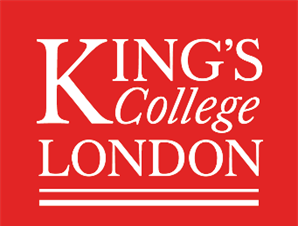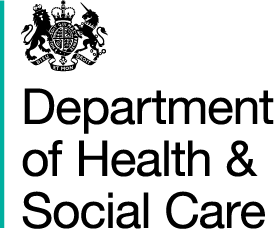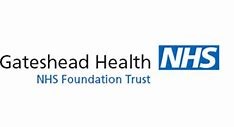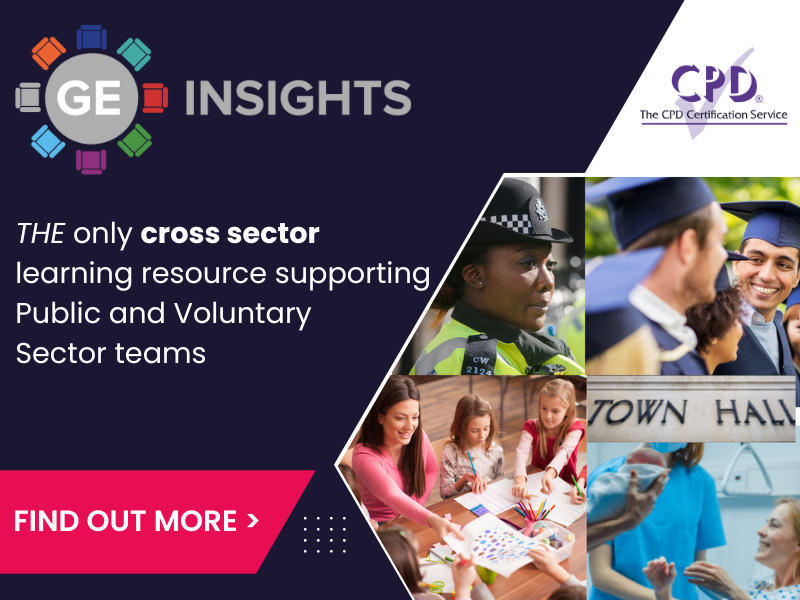- Overview
-
In 2021, NHS England established the National Healthcare Inequalities Improvement, a framework that outlined their plan for delivering exceptional quality healthcare for all. Following this, the Health and Care Act 2022 introduced new measures to tackle inequalities through joining up NHS, social care and public health services at a local level. Although these plans are steps in the right direction, with health disparities across the country remaining prevalent, it is now more essential than ever to ensure that people from all backgrounds have access to high quality and effective care. Through sharing best practice, those working to narrow health inequalities can build upon their existing success and develop new strategies to improve services, tackle barriers to access, and better engage with local communities. - There is an almost 19-year gap healthy life expectancy between the most and least deprived areas in England, according to the Health Foundation, 2023
- Almost a third of children in the UK currently live in poverty and are at risk of experiencing poorer health outcomes, states a 2023 report from NHS Providers
- Maternal mortality for Black women is currently almost four times higher than for White women, according to a 2023 House of Commons report
Join us at Improving Health Outcomes in Marginalised Communities 2024 to hear the latest updates and guidance from leading experts and those working at the forefront of reducing health inequalities. Engage with a series of best practice case studies showcasing successful partnership working, practical tips on addressing wider determinants of health, and strategies for creating targeted and meaningful interventions. You will also have the opportunity to network with senior colleagues from across the field to discuss challenges you have faced in delivering accessible and effective services during the cost-of-living crisis.
Why Attend:
✓ Hear high-level keynotes on the latest updates and national guidance for narrowing health inequalities✓ Gain practical insights into providing holistic care, engaging with local communities, and coproducing services
✓ Engage with senior colleagues from across public and voluntary sectors to discuss strategies for tackling health inequalities during the cost-of-living crisis
✓ Gain 4 hours of CPD points towards your yearly quota - Agenda
-
-
Online Registration
-
Chair’s Opening Remarks
Stephani Hatch, Vice Dean for Culture, Diversity & Inclusion, Professor of Sociology and Epidemiology, King’s College London (CONFIRMED)
-
Keynote:
Jennifer Yip, Consultant Lead on Health Equity, Science and Strategy, Department for Health & Social Care (CONFRIMED)
-
Case Study: Taking Action to Reduce Health Inequalities in the African & Caribbean Community
- Best-practice examples for tackling barriers to accessible mental health recovery services for people of African and Caribbean descent
- Insights into the barriers to accessible care faced by people from African and Caribbean communities with complex needs
- Strategies for providing emotional, practical and social support to struggling members of the African and Caribbean community
- Guidance on tackling stigmas and raising awareness of available health services in marginalised communities
Patricia Johnson, Chief Officer, Sandwell African Caribbean Mental Health Foundation (CONFIRMED)
-
Case Study: Working in Partnership to Improve Health Outcomes for All
- Developing comprehensive strategies for reducing health inequalities across an integrated care partnership
- Engaging with marginalised communities to ensure health services are meeting the needs of the diverse local populations
- Strategies for targeting efforts in areas of high deprivation to ensure effective and meaningful interventions
- Developing and implementing training programmes to ensure culturally competent staff and continued learning
Dr Sophia Morris, System Clinical Lead for Inequalities, Mid and South Essex Integrated Care System (CONFIRMED)
-
Questions & Answers Session
-
Comfort Break
-
Breakout Networking: Tackling Health Disparities During the Cost-of-Living Crisis
This session will provide you with the opportunity to discuss the main challenges you face in providing accessible and effective services during the cost-of-living crisis. We encourage you to share your strategies for addressing wider detriments of health and ensuring services meet the needs of local users. Take this time to share your experiences and network with senior colleagues.
-
Case Study: A Collaborative Approach to Improving Health Outcomes for Children and Young People living with Type 1 Diabetes in North East & North Cumbria.
Dr Judith Reid, Children and Young People’s Diabetes Service Lead, Gateshead Health NHS Foundation (CONFIRMED)
Jenny Foster, Network Manager, Children and Young People’s Cumbria Diabetes Network (CONFIRMED)
-
Case Study: Engaging with Communities to Create Accessible Care Services
- Working with stakeholders and residents to coproduce services that meet the needs of the diverse local populations
- Key guidance on ensuring accessible and inclusive services for non-native English speakers
- Encouraging citizens to take a more active role in supporting their own and others’ mental health through wellbeing champion programmes
- Practical advice for creating effective outreach strategies for socially excluded groups such as rough sleepers, migrants, and sex workers
Christina Gleeson, Public Health Manager, Luton Borough Council (CONFIRMED)
-
Case Study: Social Prescribing: Narrowing Inequalities Through Early Intervention and Holistic Care
- Insights into how social prescribing can be used to reduce health inequalities in local communities
- Using data to identity residents most likely to suffer from health inequalities and identify areas of burden
- Working with community organisations to address the gaps in traditional health and care services
- Guidance on creating meaningful relationships with residents to better provide holistic care and services
Dr Priya Kumar, Genal Practitioner Partner, Kumar Medical Centre, Health Inequalities Lead, Slough Borough Council (CONFIRMED)
-
Questions & Answers Session
-
Chair’s Closing Remarks
-
- Who Should Attend
-
Who Should Attend?
Delegates who will have an interest in this event will be people who work on improving the Health Outcomes of people in marginalised communities.
*This Conference is open to Public, Private and Third Sectors
For more information or to make a booking please call 0330 058 4285

- Sponsorship
-
Raise your Profile, Showcase Your Solutions, Generate New Business
If your products, services, and solutions can support our audiences in their roles, and you want to make connections and generate new business with key stakeholders, decision makers, and influencers, then please contact Chris and Ali today at sponsorship@governmentevents.co.uk or complete our enquiry form here and we will contact you.
Benefits of partnering with us include:
- Brand awareness: Be seen by a highly targeted and engaged audience before, during, and after the conference.
- Lead generation: Meet the decision-makers and influencers responsible for making purchasing decisions on cyber security and data protection.
- Thought leadership: Position your organisation and experts as thought leaders and the ‘go to’ experts.
- Networking: Make valuable connections with potential new customers and partners across government and the wider public sector
- Grow your business: Reach decision makers in a single event on just one day and in one location (with no travel/accommodation required), saving you time and money.
- Gain valuable insights: Hear the latest from key stakeholders in government, and across the public and voluntary sectors.
IMPORTANT: There are only a small number of sponsorship opportunities available to ensure maximum exposure and ROI – contact us today to secure your place.
All packages include:
- Extensive branding – before, during, after the conference
- 15-20 min morning speaking session with Q&A
- Virtual stand to showcase your organisation, products, services, and solutions
- Opportunities to network during the day
- Half to full page ad in the E-Guide
- Banner ad on the virtual events platform
- Announcement post on LinkedIn
- Announcement within delegate communication
- 1-3 delegate places (worth upto £1,947)
- Access to the delegate details after the event
- Ongoing exposure through OnDemand (coming soon)
For more information and discuss your specific objectives, please contact Chris and Ali at sponsorship@governmentevents.co.uk or complete our enquiry form here
Virtual vs F2F
Whilst F2F provide better options for networking, there are many distinct advantages of sponsoring our online conferences including:
- Wider geographical reach of delegates and a different audience who prefer online to f2f
- Lower sponsorship package costs
- No travel/accommodation
- Less time out of the office
- No stand materials required (lower costs)
- 1 of only 2 sponsors involved – less competition on the day
- Prime speaking slot in the morning of the conference including Q&A – less distractions and easier for delegates to hear/absorb information
- Receive all delegate data after the conference to follow-up directly with those who attend and don’t attend (small % but still key stakeholders)
- Ongoing exposure via OnDemand access (coming soon)
To find out more and discuss your specific objectives, please contact Chris and Ali at sponsorship@governmentevents.co.uk or complete our enquiry form here
- Pricing
-
- Public Sector Rate incl. GE Insights: £235 +VAT+VAT
- Voluntary Sector Rate incl. GE Insights:: £235 +VAT+VAT
- Private Sector Rate incl. GE Insights:: £425 +VAT+VAT








